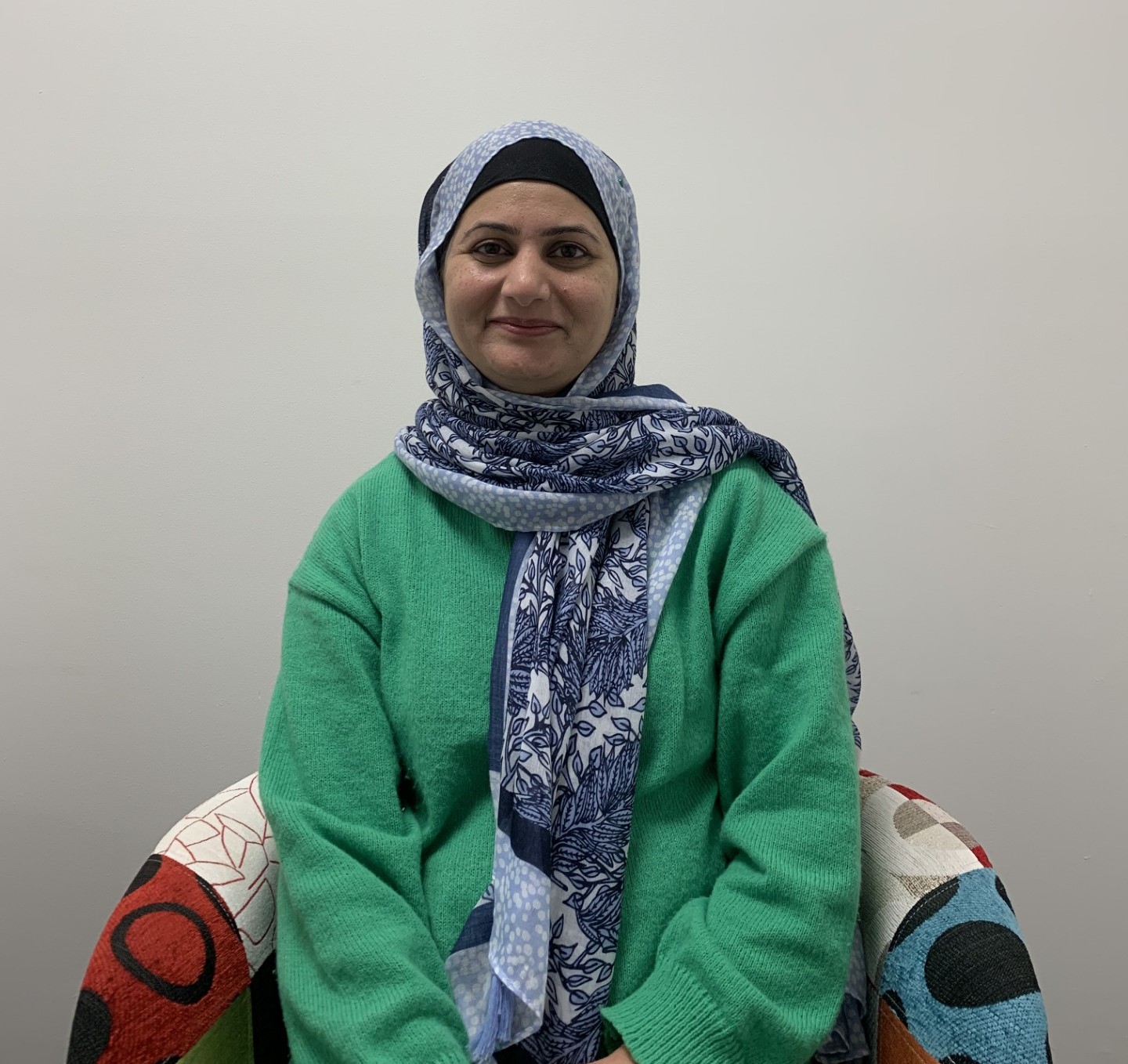
Participating in The Rights Path Project as a Lived Experience Consultant helped Rabia—a mum of two from a Pakistani background who speaks Urdu, Punjabi and English—discover her voice and recognise her role as an advocate within her community.
Rabia’s experience navigating the NDIS and challenging stigma
When her son was diagnosed with a speech delay disorder and began receiving NDIS-funded therapies, Rabia found herself navigating not only unfamiliar systems, but also the cultural silence that surrounded disability in her community.
“If I would have been in Pakistan, I can’t talk about this,” said Rabia.
“Everybody has their own concept of what disability is to them, it’s a stigma and especially from the community I am in, it’s like a taboo. We can’t talk about this.”
This silence makes it difficult for families like hers to speak openly, ask for help, or advocate for support.
Discovering her rights and herself
Before becoming involved in The Rights Path Project, Rabia didn’t fully understand her rights or the role she could play in supporting others. As a Lived Experience Consultant for the project, she contributed her personal perspective and community insights to help shape culturally responsive, in-language resources about participants’ rights under the NDIS and how to advocate for services and supports.
“I didn’t know my rights. But after getting involved in this project, I got to know myself,” said Rabia.
“I identified myself. My skills, my hidden potential. I asked myself, “What can I do?” I can speak. I can share my opinion. I can raise awareness.”
Rabia learned how to navigate the NDIS, what to expect from providers, and how to raise concerns, and gained the confidence to speak up.
How Rabia is using her experience to support others
Since participating in the project, Rabia has become someone others turn to for support. She speaks to families from her community who are facing similar challenges, many of whom felt they had no one to talk to about their NDIS journey or their child’s diagnosis. Her openness has encouraged others to speak up, ask questions, and understand their rights.
“I can be trusted, and people are trusting me,” said Rabia.
“I learnt that our community needs us and what I have learnt in this project is that I can share it with my community. I can share knowledge; I can share my experience. I can share what I have learned. I can spread the word.”
Now the resources are available, Rabia sees this as a new beginning. She’s continuing to raise awareness and create safe spaces for others to talk about disability without shame.
How The Rights Path resources help others
- The resources we’ve created are a helpful guide for anyone facing similar issues.
- The videos encourage people to speak up and highlight the importance of advocacy and self-advocacy in the NDIS system.
- They empower individuals to understand their rights and the steps to take when problems arise.
- Even if someone doesn’t have a support coordinator or can’t reach one, the simple five-step guide in the fact sheet will help them advocate for themselves.
- It’s essential that these resources are available in community languages, so language barriers don’t stop people from understanding how to file a complaint.
- The community education workshops will also be a great help for those who need additional support.
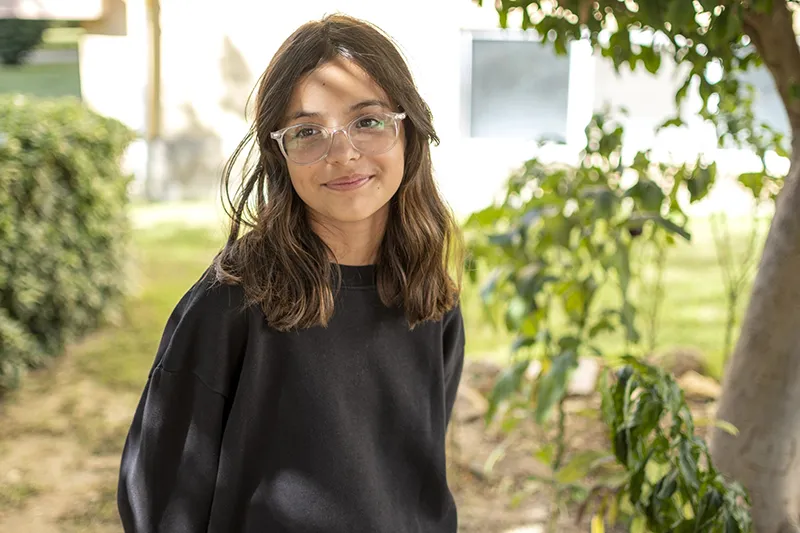
For 11-year-old Emma Ralph, support from her NDIS local area coordinator (LAC) Julie Bergmanis has had a huge impact on her health and wellbeing. A time in her life once defined by hardship has now become a journey towards freedom and security.
Beginning the journey as a person with disability
In 2022, Emma suffered a cardiac arrest and was diagnosed with Catecholaminergic Polymorphic Ventricular Tachycardia (CPVT), a genetic disorder that can lead to life-threatening heart irregularities called arrythmias.
Emma’s condition restricts her from doing certain tasks, and outdoor activities such as going to the beach or pool, can be risky. Caring for Emma also represents a significant time investment for her mother, Sheree, who believes that greater access to medical equipment could alleviate much of the stress involved in making sure Emma is safe.
Julie’s role as Emma’s LAC began in February 2024, and since then, she has worked tirelessly to acquire and install a heart defibrillator outside her home for emergencies.
“It’s unfair that people like Emma are unable to access lifesaving items or afford the high cost of owning one,” said Julie.
Connecting with mainstream and community supports
While Emma is a participant on the NDIS, certain health-related supports are instead arranged through mainstream and community services. So Julie began exploring local initiatives to find the vital equipment Emma needed. She found a collaboration between a charity, Heart of the Nation, and organisations in the Macarthur region that install Automated External Defibrillators (AEDs) in the community.
Julie recognised it as the perfect opportunity to improve Emma’s quality of life. Her discovery also represents the crucial role that LACs play in identifying and navigating mainstream health supports for their participants.
“Before Julie, it was really hard for Emma, as the people before her never took her heart condition in mind when doing things for her,” said Sheree.
After liaising with Heart of the Nation for many months, Julie’s efforts proved successful, and an AED was set up in January 2025 in Emma’s housing community. This is a big step forward in her healthcare journey. Her home now feels safe, just as it should.
This recent development has been a great result not only for Emma. The defibrillator has also helped another child in foster care next door, and will help others in the area with similar health needs, now and in the future.
Achieving goals with a strong support network
Despite these achievements, Julie knows that her work as Emma’s LAC is far from over. Their frequent meetings help Emma understand that, in addition to her close family and friends, there are many supports out there aiming to keep her safe and healthy.
“Emma always appreciates all the work that Julie does for us,” said Sheree.
With these health supports now in place, Emma can focus on other goals, such as her high school studies or dedicating her time to arts and crafts.
“Emma knows if she needs help, she has all the support from her teachers, myself, and Julie,” Sheree said.
Through her role as an LAC, Julie hopes she can continue being an important part of Emma’s life, helping her achieve her goals and allowing her to experience life to the fullest.
Learn more about SSI’s disability services
Learn about SSI’s range of disability services on our website. You can contact your local area coordination team at:
Phone: 1800 960 975
Email: ssilac@ndis.gov.au
With the threat of Cyclone Alfred looming over parts of Queensland and NSW in February/March, SSI staff got to work providing information and support to keep migrant and refugee communities, as well as other vulnerable groups, safe during the natural disaster.
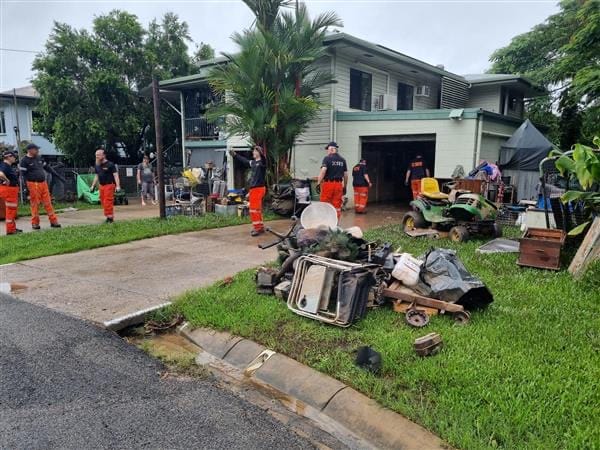
Image courtesy of NSW SES
Meet Sahba
SSI Community Relations Officer Sahba Hamid went above and beyond to ensure that the community was safe. Although she herself was navigating the effects of the cyclone, Sahba and her team worked tirelessly to contact clients, offer in-person support, and ensure community members had the information, support and resources required to safely ride out the cyclone.
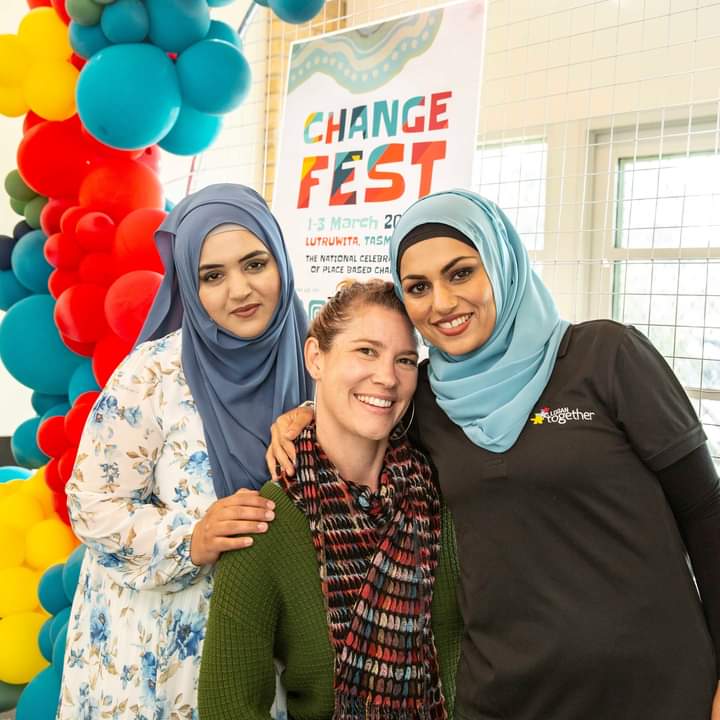
Sahba (right) with an SSI colleague and community member.
Our team of case workers checked to see what people understood and what they could do to prepare themselves and their families.
Working with community leaders, we also ensured that translated resources were available across various communications platforms. Feedback from our community indicated that there was a need for curated, simplified information to make it easier for migrant and refugee communities to understand.
Two forums were organised in partnership with other settlement services and Multicultural Affairs Queensland to prepare our multicultural communities for Cyclone Alfred. The forums were to provide access to post-cyclone recovery assistance and support to prepare for future weather events.
After the cyclone event, case workers supported clients who were affected with insurance applications, hardship payments and disaster grant applications, as well as emergency relief referrals and recovery support.
We’re able to react and help the community thanks to the funding from the Settlement Engagement and Transition Support (SETS) program funded by the federal government and the Community Action for a Multicultural Society (CAMS) program funded by Queensland government.
We’re proud of how our staff banded together to keep the community safe and informed.
Migration is an incredibly complex and personal experience, often shaped by conflict, trauma, and loss.
For women like Ukrainian counsellor Olga, this journey also intersects with a range of unique challenges tied to personal challenges and specific of her qualification and profession. That was a place where she transformed individual refugee experience into a powerful tool to help other newcomers.
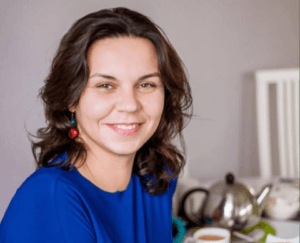 In 2022, after the war broke out, Olga fled her home with her family. Seeking safety for her children, she arrived in Australia and began rebuilding their lives in a new country.
In 2022, after the war broke out, Olga fled her home with her family. Seeking safety for her children, she arrived in Australia and began rebuilding their lives in a new country.
Her journey was not easy, like that of many women refugees, but her new life required and highlighted the importance of an attentive and gentle approach in resettlement services.
Olga said she felt less alone after she began working with her case manager through SSI’s Humanitarian Settlement Program (HSP), which provides tailored services designed to meet the unique needs and strengths of individuals and families resettling in Australia as refugees.
“My case worker, Munira, gave me a lot of attention and time, offering everything I could possibly need. I felt supported in everything I did through the program,” she said.
Olga found that participating in the programs’ orientation sessions not only helped her learn about the new country her family now called home but also helped her to connect with other members of the Ukrainian community in Australia, fostering a better sense of belonging.
“These sessions were incredibly helpful; I still remember the knowledge I gained from them years ago. It was an amazing start for my professional growth in Australia,” she said.
As an experienced counsellor, who was waiting for her qualification being recognised, Olga was happy to facilitate and deliver groups about domestic, sexual, and family violence (DFSV) awareness for the Ukrainian community where support for newly arrived women was a key focus. She was also grateful to have the opportunity to share her expertise and facilitation skills to support other refugees during the orientation sessions and groups for the families in culture transition.
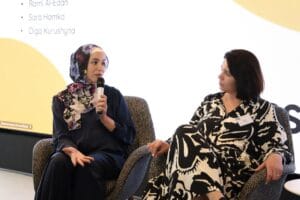 “It’s essential for newly arrived refugees to have a platform where they can address issues and learn how to protect themselves and their families. Everyone deserves to be safe, especially at home, even if it’s very new,” Olga said.
“It’s essential for newly arrived refugees to have a platform where they can address issues and learn how to protect themselves and their families. Everyone deserves to be safe, especially at home, even if it’s very new,” Olga said.
She secured employment opportunities with the support of SSI’s Refugee Employment Support Program, along with her dedication and ability to navigate her networks and community.
Olga worked tirelessly to have her overseas qualification recognised and secure the right to work as a counsellor in Australia. All while studying and managing full responsibility for her family.
Later she secured a role as an employment facilitator with RESP and found out that SSI’s gender-sensitive services also include wellbeing assessment tools designed to identify potential trauma experiences, such as DFSV, and assess the risks women may face during resettlement. It was important to have those tools in her work. “By identifying such risks early, our specialists can intervene and provide appropriate support and resources,”she said.
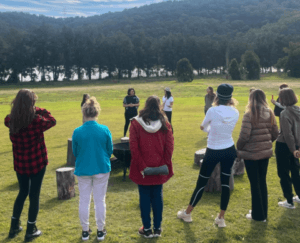 Like many refugee women leading their household, Olga’s economic goal to gain employment was crucial to building her sense of independence. However, despite her extensive background in psychotherapy, she initially struggled to find employment due to her visa status.
Like many refugee women leading their household, Olga’s economic goal to gain employment was crucial to building her sense of independence. However, despite her extensive background in psychotherapy, she initially struggled to find employment due to her visa status.
With support from SSI’s Ignite Small Business Start-ups, Olga’s combined her skills and networks to establish her own business, OK Club, running mindfulness workshops for refugees online and in person, including a Women’s Circle retreat for Ukrainians.
“What I was trying to achieve was difficult, but with the support I had at the time, it was possible,” she said.
In 2024, Olga began working full-time with NSW Service for the Treatment and Rehabilitation of Torture and Trauma Survivors (STARTTS) as a therapeutic counsellor, offering therapeutic support to other people who have navigated forced displacement.
“Such a beautiful place we call our new home. I adore the equality of genders in Australia. It is amazing that as professionals we have programs like Gender Equity Strategy to support our clients. I take a gendered approach to migration and resettlement, ensuring everyone receives the support needed to thrive, rebuild their lives, and contribute meaningfully.” Learn more.
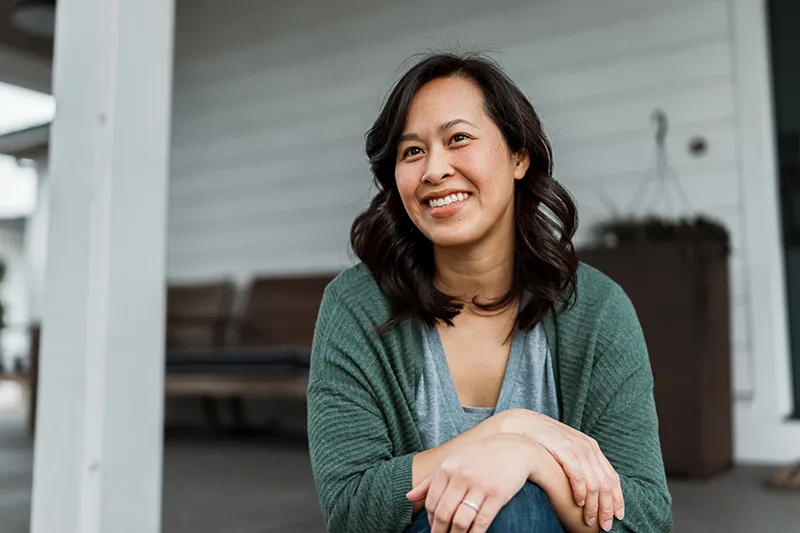
Participating in The Rights Path project as a lived experience consultant helped Anh gain a better understanding of her own rights and the steps to take when facing issues with NDIS services. Her experience will also empower others in the community who are experiencing similar challenges.
Anh’s experience raising her concerns about NDIS supports and services
“According to my daughter’s [NDIS] plan, she was supposed to receive care every Monday. However, following a public holiday, she missed out on the service and was later issued an invoice for that day,” said Anh.
“When I reached out to the provider two weeks later, I couldn’t reach the support coordinator. I contacted the plan manager for help, who assisted me in drafting an email to complain about the overpayment.”
When Anh filed her first complaint, the provider initially claimed there was no proof of a cancellation due to the public holiday. Anh then provided the cancellation email she had sent, but the provider responded by stating that a two-week notice was required. Anh confirmed her cancellation email had met the required notice period. However, instead of addressing the issue, the provider changed the service day to Wednesday and sent a new invoice.
Despite her efforts, the provider did not resolve the issue, prompting Anh to file a second complaint and eventually switch to a different provider due to the lack of resolution.
How participating in The Rights Path project helped Anh understand her rights and the need to complain
Anh found that participating in the project helped her understand the importance of documentation in these situations.
“The steps for [making a complaint that] I learned in the project helped me understand how to complain. I knew what I could do to ensure I am not being overcharged,” said Anh.
“The workshops provided clear guidance on how to navigate such issues.”
Anh is now confident to advocate for herself.
How The Rights Path resources will help others
- The resources we’ve created are a helpful guide for anyone facing similar issues.
- The videos encourage people to speak up and highlight the importance of advocacy and self-advocacy in the NDIS system.
- They empower individuals to understand their rights and the steps to take when problems arise.
- Even if someone doesn’t have a support coordinator or can’t reach one, the simple five-step guide in the fact sheet will help them advocate for themselves.
- It’s essential that these resources are available in community languages so language barriers don’t stop people from understanding how to file a complaint.
- The community education workshops will also be a great help for those who need additional support.
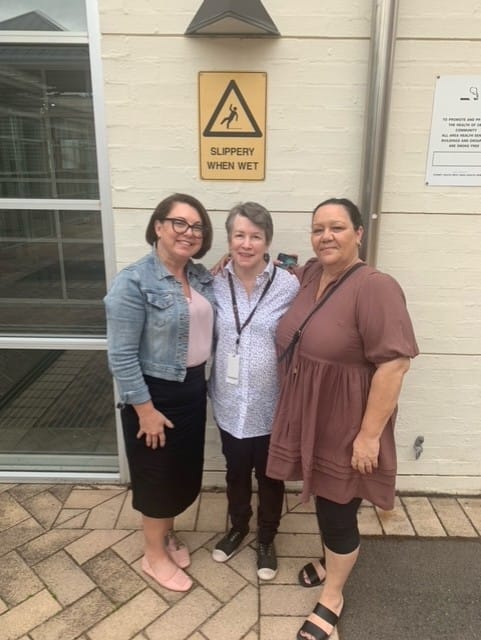
At SSI, we are committed to providing inclusive, culturally responsive disability services that support Aboriginal and Torres Strait Islander communities.
We’re actively engaging with First Nations people to ensure they receive the services and supports they need. From a history of working closely with First Nations communities in programs such as Ability Links, to a firm commitment to reconciliation (which currently involves a detailed review and expansion of our 2022 Reconciliation Action Plan), to a dedicated team of Aboriginal NDIS local area coordinators (LACs).
Aboriginal LACs Kylie Natividad (left) and Kerin Carpenter (right) with Aunty Robin Young (middle)
Building stronger communities through local area coordination
Our local area coordination program links people with disability to the right supports and services. A key aspect of this effort is community-based connection desks, which have been established in the communities we serve, including one held twice a month in Bowral. It is specially tailored to First Nations people in the Wingecarribee Council area and provides an accessible, welcoming space where community members can have their questions about the NDIS answered.
Community connection proves key to success
Kerin and Kylie, two of our Aboriginal local area coordinators, attend this connection desk, sharing yarns and their expertise of the scheme with prospective and current participants. Their work helps connect members of the community to vital supports, including peer networks and healthcare services. They also help build capacity for people to navigate the NDIS with confidence, clearing up doubts about the scheme.
Aunty Robin Young, a representative of Bowral Community Mental Health Services praised Kerin and Kylie for their dedication, cultural sensitivity, and enthusiasm.
“The health and wellbeing of those regularly cared for by the girls has greatly improved,” said Aunty Robin. She highlights the importance of following six common values that encompass the First Nations experience:
- Spirit and integrity
- Reciprocity (sharing)
- Respect
- Equality
- Survival and protection
- Responsibility
Kerin and Kylie uphold these values in their work, ensuring that each person’s unique needs are addressed, even when they share the same diagnosis or disability.
This personalisation of care is what Aunty Robin feels has made such a difference.
“Members of the community have developed the skills, knowledge, and broader strategies to improve their health,” she said.
NDIS enquiries handled with care
For those who prefer not to attend in-person events, SSI also offers phone consultations with our Aboriginal LACs. These calls can be life-changing for people who feel less comfortable attending in-person events, or have quick questions that don’t need a face-to-face discussion.
“[This service] has benefitted the communities greatly with their emotional wellbeing and their engagement with the health service,” said Aunty Robin.
Tailored disability services for First Nations communities
It’s clear that disability services must go beyond major metropolitan areas to reach rural and remote communities. Also, these services must be carefully tailored to the unique needs of minority groups, especially those at risk of neglect and abuse, such as First Nations people.
SSI’s Aboriginal LACs continue to build strong partnerships with local organisations, networks and groups to deliver personalised, culturally sensitive support that is not only knowledgeable, but approachable. We’re committed to ensuring that every individual, regardless of their background or location, has access to the support they need.
Learn more about SSI’s disability services
Learn about SSI’s range of disability services on our website. You can contact your local area coordination team at:
Phone: 1800 960 975
Email: ssilac@ndis.gov.au


How maternity care is a gateway to safety for vulnerable women
Rashida’s* days are busy. Her vital work as a maternity support officer assists some of the community’s most vulnerable women. For many refugees and culturally diverse women experiencing domestic violence, the path to safety often begins with a trusted first-line responder like Rashida.
“Most of the women I support have experienced some form of domestic violence, whether it’s emotional, financial, or physical abuse,” says Rashida.
With dual degrees in Human Services and Arabic linguistics, Rashida brings a unique combination of professional expertise and cultural understanding to her role.
While the program’s primary focus is maternal health, it has become an unexpected but crucial gateway for domestic violence support.
Building trust takes time
“It’s not something that happens in the first meeting,” Rashida explains. “They don’t immediately talk about their personal life. Over time, they feel comfortable with me and start opening up about their situation. It takes time to build that trust.”
This gradual trust-building proves crucial, as many women from Culturally and Linguistically Diverse (CaLD) backgrounds face multiple barriers to accessing mainstream domestic violence support services. Language difficulties, cultural stigma, and limited awareness of available resources can all prevent women from seeking help.
“Sometimes they think this is the norm,” Rashida reveals. “They say, ‘I saw my mom, I saw my sister growing up like that.’ Part of our role is to reassure them that this is not okay and break the stigma that’s been there for years.”
Navigating the system
“It’s really hard for the women to navigate the health system,” she explains. “My role is to break down barriers by providing information and resources, explaining their rights, and helping them make their way through the system and services.”
Despite being thrust into this crucial support role, many first-line responders lack formal training in critical areas such as trauma-informed care, cultural competency, and domestic violence risk assessments. This gap can mean the difference between a woman seeking help or remaining in danger.
Rashida recalls a client who took two years to speak up about her domestic violence experience.
“After the client’s baby was delivered and she exited the program, she kept in touch with me and disclosed what was happening to her 12 months later.”
“With better training in recognising signs and building trust, we could potentially help women reach safety much sooner,” Rashida says.
Investment is crucial
The impact of inadequate support in this area ripples through communities. Without properly trained, often bi-lingual first-line responders, women are falling through the cracks.
Trauma-informed training, cultural competency programs and family, domestic and sexual violence risk assessment training and in-language resources and supports are just some of the areas that could be bolstered to support first-line responders who are receiving disclosures.
“Training in trauma-informed care and cultural competency would be invaluable for first-line responders,” Rashida says. “Understanding how to handle disclosures sensitively and how trauma impacts behaviour could significantly improve our ability to provide meaningful support”.
Despite the complexities of Rashida’s role, she finds deep fulfilment in her work.
“I like to see women in my care become more independent, to thrive,” she says. “I know how it feels coming to a new country, new environment, new culture, new language. To see them thrive, that’s my goal. That’s what keeps me going.”
Rashida was interviewed as part of SSI’s support of 16 Days of Activism Against Gender-based Violence. This year, we’re calling on more investment for first-line responders like Rashida to be better equipped to support women experiencing family, domestic and sexual violence.
*Name/s changed to protect privacy and safety.
Do you need support?
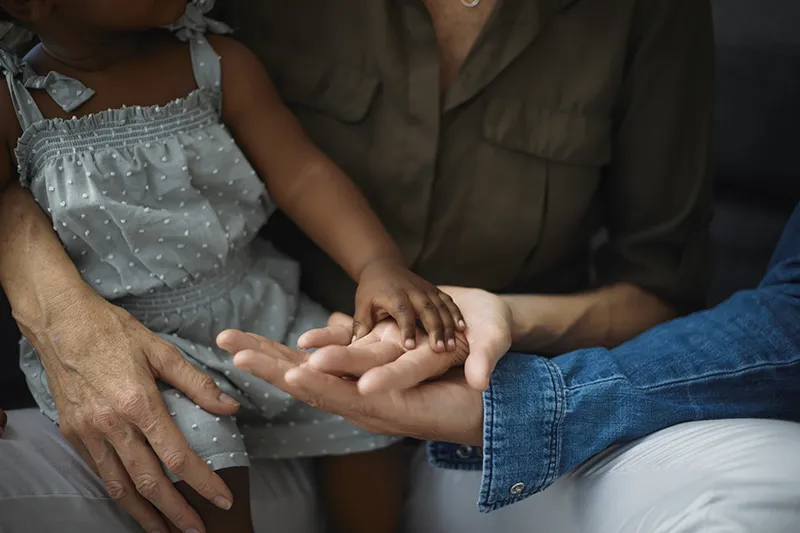
Community workers filling the gaps when it comes to women experiencing domestic violence
Sara* is a dedicated community worker who has spent much of her young adult life in various social work roles. Recently, her own cultural background has proven life-changing for some of the female clients in her care – many of whom are experiencing domestic violence and need someone to talk to in-language.
“They don’t come asking for support directly,” she says. “Someone might talk to you about their situation at home seeking support, and then, through the stories they’ve shared with me, I realise they’re experiencing abuse.”
In the three short months Sara has been in her new role helping newly arrived families settle, Sara says that two to three of her five family intakes have already indicated domestic violence, identifying a major gap in support for these women.
New to Australia, women are often unfamiliar with their legal rights, the process of reporting violence, and the support systems available to them. Meeting someone who speaks their language can make all the difference.
Trust established through shared background
As part of Sara’s role, she visits families in their own homes. She recognises that this safe environment encourages them to share their experiences.
“They feel secure enough to open up and share what they’re going through,” she says. “It’s not out in public or an institution where they might feel observed.”
“Speaking the same language helps them feel at ease and it also allows me to build a stronger relationship with them,” she says.
Sara recalls a client who recently shared that she was being physically abused by her husband.
“She saw me as someone who shared her background and spoke the same language,” Sara says. “She asked, ‘Is there any way you can support me? You’re my sister. You understand how to help me.’”
Sara says many of the women who come to her and her colleagues aren’t ready to make a formal report, yet they are in crisis.
“They tell me because they want to see how I can support and protect them within my capacity without opening a formal case,” she says.
“Fearing the repercussions, they wonder, ‘If I involve someone else, will that put me at risk? Now I need to provide this paperwork and documentation. Why is this needed?” Sara says. “The process of getting mainstream support often becomes too overwhelming.”
“Instead, they want to rely on me alone for help. However, my capacity is limited. I’m not a specialist support worker, and I can’t address their immediate safety needs without formal training,” she says.
Despite this, Sara emphasises her moral responsibility around receiving disclosures.
“I have a duty of care. I must do everything I can to support a woman and her children if she has disclosed or is in crisis.”
The bias and barriers of language
For the women who do try to access mainstream services, Sara points out the challenges with on call interpreters one of many barriers impacting CALD women who are experiencing domestic violence.
“One moment, a woman might be in the middle of disclosing her experiences through an on-call interpreter and, the next minute, the line disconnects. She then faces a long wait to be assigned another interpreter. You can imagine the toll that takes.”
Sara also recalls an instance where she witnessed a male interpreter misinterpret her female client’s disclosure of physical abuse, distorting her words with an obvious bias. She notes that this situation is common.
“We need better training for interpreters. They need to be trauma-informed and specialised in domestic violence to better support women accessing these services.”
The need for greater investment
Sara’s role extends far beyond traditional community support. She acts as a crucial bridge between the service provider and her vulnerable clients.
While she continues to go beyond her paid role to potentially save the lives of the women who are falling through the cracks, Sara’s ability to perform her job is being impacted.
“When women are at risk, I have to prioritise supporting them, which often requires me to stop what I’m doing and affects my overall capacity,” she says.
“We need more people like me who are supporting these women. We need to have greater flexibility in our roles and must expand the scope of our community support services.”
Sara was interviewed as part of SSI’s support of 16 Days of Activism Against Gender-based Violence. This year, we’re calling on more investment for first-line responders like Sara to be better equipped to support women experiencing family, domestic and sexual violence.
*Name/s changed to protect privacy and safety.
